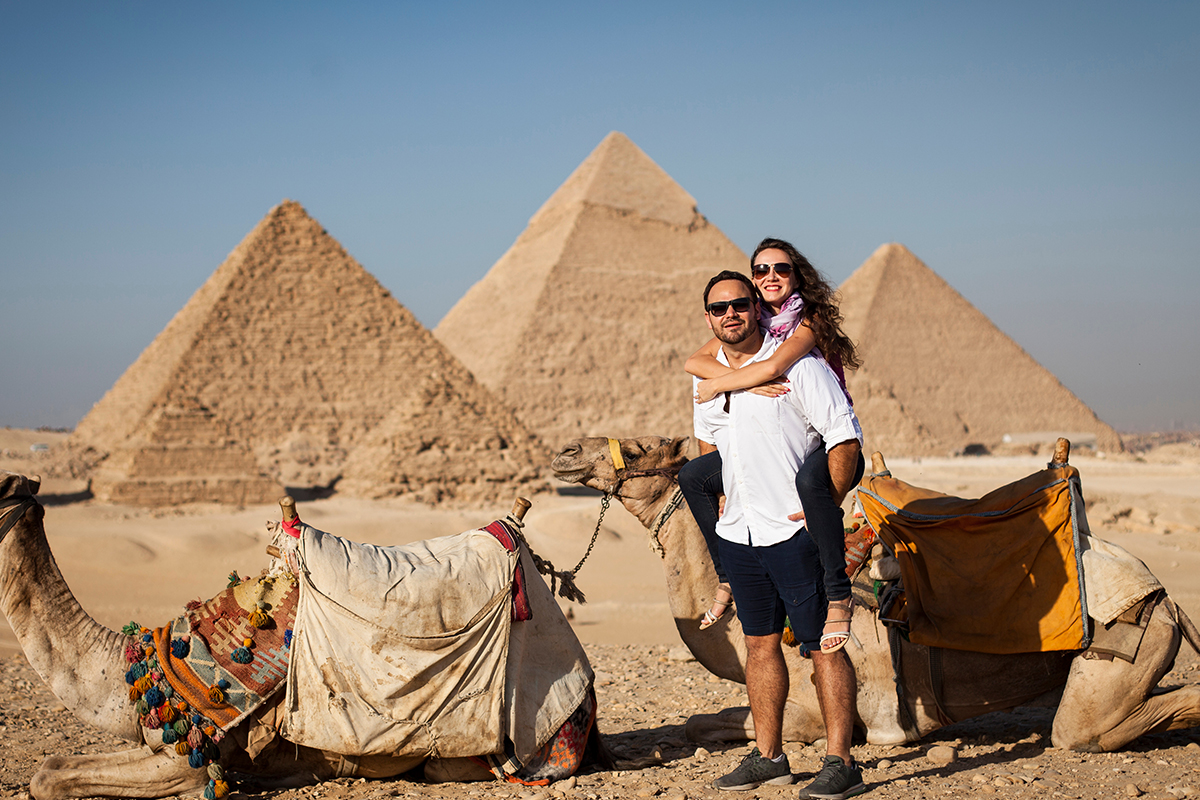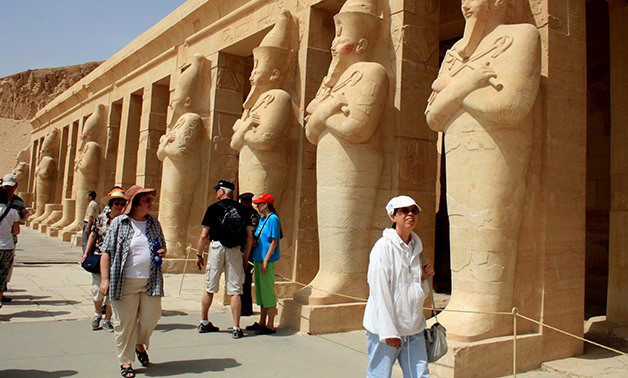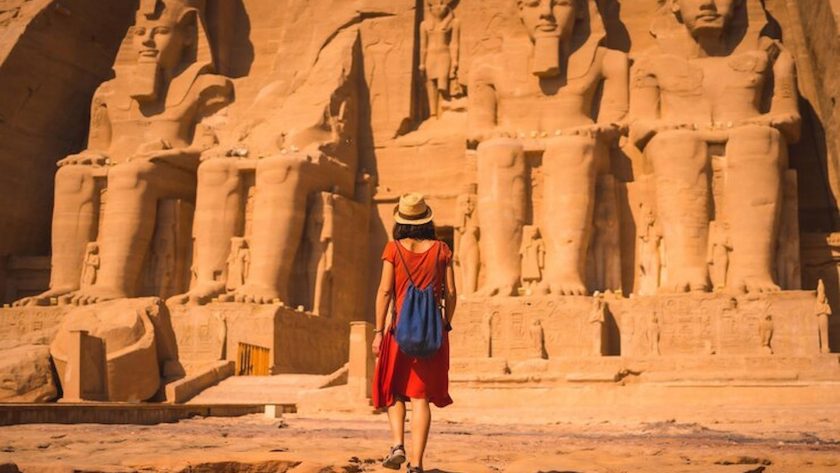Insider Tips for UK Travellers Embarking on Egypt Tours

Preparing for Your Egypt Tour
As you prepare for your exciting journey to Egypt, diving into the local culture and customs will enrich your experience. Understanding the unique social fabric of this ancient land not only enhances your appreciation for its history but also makes your interactions with locals more meaningful.
Researching Egypt's Culture and Customs
Egyptian culture is a beautiful blend of ancient traditions and modern influences. Here are a few key points to consider as you research:
- Language: While Arabic is the official language, many Egyptians, especially in tourist areas, speak English. Learning a few phrases, such as “shukran” (thank you) or “marhaba” (hello), can go a long way in fostering rapport.
- Religion: The majority of Egyptians practice Islam, and it's reflected in daily life. Understanding the significance of prayer times and the month of Ramadan can enhance your interactions and respect for local customs.
- Social Norms: Greetings are important in Egypt. A handshake is common, and it’s polite to inquire about someone's health or family.
Researching these cultural nuances will prepare you for respectful and engaging interactions throughout your travels in Egypt.
Packing Essentials for Your Trip
When it comes to packing, Egypt's climate is diverse depending on the region and season. Here’s a checklist to ensure you’re well-prepared:
- Clothing:
- Lightweight, breathable clothes for hot days
- Modest attire for visiting religious sites (long sleeves and trousers)
- Comfortable walking shoes for exploring ruins and markets
- A light scarf or shawl for both warmth during cooler evenings and covering up when necessary
- Accessories:
- A sturdy backpack for day trips
- Sunglasses and a sun hat to protect against the Egyptian sun
- A reusable water bottle to stay hydrated and reduce plastic waste
- Electronics:
- Power adapter – Egypt uses type C and E plugs
- A travel camera to capture those breathtaking sites
- Health and Safety:
- Basic first-aid kit – think antiseptic wipes, plasters, and any personal medications
Packing thoughtfully will ensure you’re comfortable and ready for the myriad experiences awaiting you in this magical land.
Visas and Documentation Needed
Before you embark on your adventure, let's tackle the necessary documentation. Most travellers will require a tourist visa to enter Egypt. Here’s a simple breakdown of what you need to know:
- Visa Types:
- E-Visa: Convenient for many nationalities, you can apply online prior to your trip.
- Visa on Arrival: Available for certain countries, but ensure to check if your nationality qualifies.
- Documentation Requirements:
- A valid passport with at least six months of validity beyond your arrival date
- A recent passport-sized photograph (if applying for a visa on arrival)
- Proof of onward travel (a return flight itinerary)
Remember to keep copies of your passports and visas, both digitally and physically, in case you need them while exploring.
By researching Egypt's rich cultural background, packing smartly for your trip, and ensuring you have the required visas and documentation, you're already well on your way to experiencing the wonders of Egypt. The preparations you make will help create unforgettable memories as you immerse yourself in this remarkable destination.

Understanding Egyptian Etiquette
Now that you're all set for your adventure in Egypt, it's vital to grasp the etiquette and social norms that will enhance your interactions with locals. By adhering to these customs, you pave the way for meaningful connections and a richer experience in this vibrant land.
Greetings and Social Interactions
In Egypt, greetings are not just a formality; they are an essential part of social interaction. When meeting someone, a warm handshake is customary. However, if you’re meeting a woman, it’s always polite to wait for her to extend her hand first.
- Use Names: Prefixing someone’s name with “Mr.” or “Ms.” is appreciated and shows respect.
- Inquiries: Engaging in small talk about family, health, or the weather is common, and you might hear “Ezayak” (How are you?) often, which deserves a friendly response.
Don't be surprised if conversations drift toward politics or social issues; Egyptians are known for their passionate discussions. Just remember to approach sensitive topics with care to avoid misunderstandings.
Dress Code and Modesty Guidelines
Egypt is a country that celebrates both its grand history and its modest traditions. As a visitor, dressing appropriately can help you avoid unnecessary attention and show respect for local customs.
- For Men:
- Lightweight trousers and short-sleeved shirts are generally acceptable, but avoid shorts in rural or conservative regions.
- For Women:
- Light, loose-fitting clothing is best. Long skirts or trousers and long-sleeved blouses are recommended, especially when visiting religious sites.
- Carry a scarf to cover your shoulders or hair if necessary, especially when entering mosques.
Remember, the dress code becomes particularly important in religious or sacred sites, as locals may judge visitors based on their attire.
Dining and Tipping Practices
Dining in Egypt is often a communal and welcoming affair. If you're invited to someone’s home, it’s a significant gesture, and there are a few points to consider:
- Bringing a Gift: It’s customary to bring a small gift, such as sweets or pastries, when visiting. This gesture is appreciated and shows gratitude for the invitation.
- Dining Etiquette:
- Meals are frequently enjoyed with hands, particularly in local homes. Using your right hand is essential, as the left is considered unclean.
- Often, meals include an array of dishes, and sharing is common, so enjoy the variety presented.
Tipping, or “baksheesh,” is a common practice in Egypt and is typically expected in restaurants, cafes, and even for small services. Here’s a quick guide:
- Restaurants: 10-15% tip is appropriate for good service.
- Guides and Drivers: A small tip at the end of a tour is greatly appreciated—around £50-£100 Egyptian pounds.
- Housekeeping and Bellboys: A few pounds will suffice for assistance in hotels.
By embracing these etiquette practices regarding greetings, dressing modestly, and dining graciously, you'll not only respect local customs but also build goodwill with the people you meet on your journey. Each interaction will be a step closer to understanding the rich tapestry that makes up Egyptian society.

Navigating Egyptian Attractions
With your understanding of Egyptian etiquette under your belt, it's time to dive into the heart of what makes this beautiful country so mesmerizing: its attractions. From ancient wonders to vibrant urban landscapes, Egypt has an abundance of landmarks waiting to be explored.
Must-Visit Landmarks in Egypt
Egypt is home to some of the most breathtaking landmarks in the world. Here's a list of must-visit sites that should definitely be on your itinerary:
- The Great Pyramids of Giza: No trip to Egypt is complete without witnessing these magnificent structures, the last of the Seven Wonders of the Ancient World.
- The Sphinx: Nestled near the Pyramids, this mythical creature has stood guard for centuries and is an icon of ancient Egyptian culture.
- The Egyptian Museum: Located in Cairo, this museum houses an extensive collection of ancient artefacts, including treasures from Tutankhamun’s tomb.
- Abu Simbel Temples: Carved into a mountainside, these grand temples are a testament to Ramesses II's might and creativity. They’re located near the southern border with Sudan.
- Karnak Temple Complex: Situated in Luxor, this vast mix of temples, chapels, and sanctuaries is one of the largest religious sites in the world.
Each of these landmarks tells a story that connects you to Egypt's fascinating past.
Insider Tips for the Pyramids of Giza
When visiting the Pyramids of Giza, you'll want to soak in every moment. Here are some insider tips to enhance your experience:
- Timing is Key: Try to arrive early in the morning. This not only helps you beat the crowds but also allows you to enjoy a cool breeze before the sun's heat sets in.
- Guided Tours: Consider hiring a knowledgeable guide. They can provide insights and anecdotes that make the experience more enriching, explaining the lore surrounding the pyramids and their historical significance.
- Camel Rides: If you fancy something a bit different, consider a camel ride around the pyramids. It’s a fun way to explore the grounds, just ensure to negotiate the price beforehand!
The awe-inspiring sight of the pyramids rises above the desert sands, creating an unforgettable experience.
Exploring Luxor and the Valley of the Kings
As you journey toward Luxor, prepare to step into the ancient world of tombs and temples. The Valley of the Kings is a captivating experience, and here’s how to make the most of your visit:
- Plan Your Visits: There are many tombs to explore, but not all are open at all times. Prior research or asking your guide about the best options will save time and disappointment.
- Tomb Etiquette: Photography is generally not allowed inside the tombs to preserve the vibrant wall paintings, so save your shots for the stunning exteriors and the captivating landscape surrounding the valley.
- Hot Air Balloon Ride: For a truly breathtaking view, consider a hot air balloon ride over Luxor at sunrise. Floating over the Valley of the Kings with the soft morning light is a magical experience that shouldn't be missed.
Navigating these majestic attractions allows you to immerse yourself in Egypt's rich history and culture, making your trip a tapestry of unforgettable moments. With these tips in hand, you're well on your way to crafting an amazing adventure that you will cherish for years to come.

Staying Safe and Healthy in Egypt
As you delve deeper into your Egyptian adventure, it’s essential to prioritise your health and safety. With a little preparation and awareness, you can ensure a worry-free visit. Let’s explore what you need to know to stay safe and healthy during your travels.
Health Precautions and Vaccinations
Before travelling to Egypt, it’s wise to check in with your healthcare provider for any necessary vaccinations. Here are some key vaccinations you might want to consider:
- Hepatitis A: Highly recommended, as the virus can spread through contaminated food and water.
- Typhoid: Particularly relevant if you plan to enjoy local street food or travel off the beaten path.
- Routine Vaccines: Make sure your routine vaccinations are up-to-date, including Tetanus-Diphtheria-Pertussis and MMR (Measles, Mumps, Rubella).
In addition to vaccinations, consider these health tips to keep you feeling your best during your trip:
- Travel Insurance: Invest in comprehensive travel insurance that includes health coverage to protect against unexpected medical expenses.
- First-Aid Kit: Carry a basic first-aid kit stocked with essentials like pain relievers, antiseptics, and any personal medications.
By taking these precautions, you can make health your number one priority while travelling through Egypt.
Scam Awareness and Personal Safety Tips
Although Egypt is generally safe for tourists, it’s important to stay vigilant and aware of potential scams. Here are some tips to help you navigate interactions with locals:
- Be Cautious with Vendors: Be prepared for persistent vendors in tourist areas. It’s best to handle them with a polite but firm “no, thank you” if you’re not interested.
- Avoid Unofficial Guides: While local guides can enhance your experience, it’s wise to book through reputable tour companies or your hotel. Official guides usually have identifiable badges.
- Keep Valuables Secure: Use a money belt or a secure bag to keep your valuables close to you at all times, especially in crowded areas.
Engaging in well-informed behaviours can enhance your overall safety during your Egyptian escapade.
Food and Water Safety
Sampling Egyptian cuisine is one of the highlights of your trip, but food and water safety should be taken seriously. Here’s how to enjoy local delicacies while minimising risk:
- Drink Bottled Water: Always opt for bottled water to stay hydrated. Avoid ice, as it may be made from tap water.
- Eat Cooked Foods: Choose freshly cooked meals rather than street food that may have been sitting out. Look for busy eateries—if a place is popular with locals, chances are its food is safe.
- Wash Fruit and Vegetables: If you plan to eat raw fruits or vegetables, wash them with bottled water thoroughly to ensure they are safe for consumption.
By following these food and water safety tips, you can enjoy Egypt's culinary delights without worrying about potential health issues.
By prioritising health precautions, remaining vigilant about safety, and being mindful of food and water choices, you’re setting the stage for a fulfilling and memorable Egyptian adventure. Your preparation is the key to exploring this incredible country with confidence and peace of mind!
Maximizing Your Egypt Experience
As you delve into the wonders of Egypt, it's not just about ticking off landmarks from a list; it’s to truly immerse yourself in the culture and create memories that will last a lifetime. Here’s how you can maximise your Egypt experience while being mindful of your budget and promoting sustainability.
Engaging with Local Communities
One of the most rewarding aspects of travel is connecting with locals and understanding their way of life. Here are several ways to engage with Egyptian communities:
- Participate in Cultural Workshops: Look for workshops that teach traditional crafts such as pottery, weaving, or cooking. Not only will you learn something new, but you'll also get to interact with local artisans.
- Homestays: Consider staying with a local family. This immersive experience allows you to share meals, customs, and stories, providing an authentic insight into Egyptian life.
- Community Tours: Opt for guided tours led by locals. They will not only show you popular sights but also share personal stories and history, enriching your understanding of the area.
Engaging with local communities fosters mutual respect and understanding, making your experience much more enriching.
Budgeting and Money-Saving Tips
Travelling in Egypt can be done on various budgets, so here are some tips for saving without skimping on experiences:
- Use Public Transport: While taxis can be convenient, consider using local transport options like buses or the metro in Cairo. It's not only economical but also offers a true slice of Egyptian life.
- Eat Like a Local: Street food is both delicious and affordable. Dishes like koshari or falafel are tasty and budget-friendly. You can often get a full meal for just a few pounds.
- Negotiate Prices: Haggling is part of the culture in Egypt. Always negotiate when shopping in markets—it's expected and can save you a considerable amount.
By budgeting smartly, you can extend your stay and explore more of what Egypt has to offer.
Sustainable Tourism Practices
As the world becomes more conscious of environmental impacts, practising sustainable tourism ensures that Egypt remains pristine for future generations. Here are some easy ways to be mindful while travelling:
- Reduce Plastic Use: Carry a reusable water bottle and fill it up instead of buying bottled water. Many hotels and cafes offer refill stations.
- Support Local Businesses: Buy souvenirs from local artisans instead of mass-produced items, ensuring your money benefits the local economy.
- Stay in Eco-Friendly Accommodations: Look for hotels that implement sustainable practices, such as energy-saving measures or community development projects.
Embracing these sustainable practices not only enriches your travel experience but also helps preserve Egypt’s rich cultural and natural heritage.
By actively engaging with local communities, budgeting effectively, and making sustainable choices, you’re setting the stage for a fulfilling Egypt experience. Your journey will not only become a memorable adventure but will also positively impact the communities you visit along the way. Enjoy the incredible tapestry of history, culture, and warm hospitality that awaits you in this amazing country!
